31 Days of Walking with Grief: Others’ and Our Own
Day 9—The Well-Intentioned But Hurtful Things People Say
This is a month-long series to support persons grieving and those who love them. It includes content from “Sharing Our Stories: A Hospice Whispers Grief Support Workbook” available through Amazon and wherever books are sold.
In a series of 7 posts I’ve written, called “BE-ing With Suffering” posted through HospiceTimes.com, I discussed the well-intentioned but hurtful things people can say to those grieving. It was written to help both professional care providers and friends and loved ones know how to show up well for those who are hurting. (It’s a condensed version of my next book due out later this year on The Art of Showing Up.)
As part of that series, I listed things to and not to say to persons in the midst of grief. Any time I speak to groups, this particular topic always has a LOT of energy behind it! Many have been wounded by people who don’t know what to say, so they panic and revert to the clichés, advice-giving, and theologizing they’ve heard their grandparents and parents say:
“Well, at least you had him for 87 years.”
“She’s in a better place.”
“You have to be strong.”
“Everything happens for a reason.”
“You have to focus on the positive.”
And so much more.
They may also tell us their own story, when we barely have the energy to handle our own. It’s as if they see someone playing in the grief sandbox and go get their own shovel and pail to join in, needing space to process their own grief. They don’t realize the boundaries of when it is and isn’t appropriate to do this. They may think of it as commiserating and making a connection to comfort the person, but it often just overwhelms them, instead.
So how do we take care of ourselves, protect ourselves from such well-meaning but crappy phrases and stories? We may understand that they’re just trying to be helpful, though their words are misguided.
We can presume good will on their part, not taking it personally since their words are more about their discomfort and lack of understanding rather than any intention to hurt us. We may be able to blow it off and move on, especially if we’re rarely going to see them.
Other times, the words may cut too deeply or may come too frequently from someone whom we see often to just let them go, and we find we must speak up and set boundaries for our own sanity’s sake. Not everyone is comfortable with assertiveness and confrontation and, when we’re emotionally and mentally worn down by grief, it can be even harder.
It can be as simple as saying:
“I appreciate that you want to help. Words that say this was a good thing actually leave me feeling worse. Could you please just tell me you love me?”
“I appreciate your trying to connect with me. I barely have the energy to live with my own story, and I don’t have room to hear anyone else’s right now. Would you just tell me about the best movie you’ve seen lately, please?”
“I’m betting when you say that, you’re trying to make me feel better. Saying anything that begins with, ‘Well, at least…’ feels minimizing of my pain. Please just tell me you’re sorry this hurts.”
Find the words that work for you. Say what needs to be said with an eye toward helping them show up for you in a better way. Remember, most often, you want to keep these friendships and, though your anger and frustration are justified, it may feel heightened by your grief and a disproportionate response is not fair to take out on others.
Those who care about you will either be able to hear your boundaries and requests for what you do need, or they won’t. You get to decide who feels good for you to be around during this time and who does not. Be kind, but also be kind to yourself by taking good and protective care of your tender heart. You deserve it!
Peace,
Carla
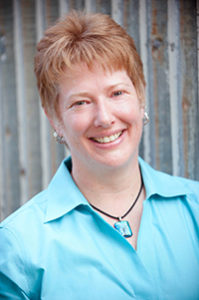 Rev. Carla Cheatham, MA, MDiv, PhD, TRT has served hospices as a chaplain and bereavement coordinator. She’s the Section Leader for the Spiritual Caregivers Section of the National Hospice and Palliative Care Organization and an adjunct professor at the Seminary of the Southwest. Through her Carla Cheatham Consulting Group, Carla provides training and consulting for professional caregivers nationwide. She is the author of Hospice Whispers: Stories of Life and its companion volume, Sharing Our Stories: A Hospice Whispers Grief Support Workbook. Her next book, On Showing Up with Suffering: Others’ and Our Own, is set to publish in 2017.
Rev. Carla Cheatham, MA, MDiv, PhD, TRT has served hospices as a chaplain and bereavement coordinator. She’s the Section Leader for the Spiritual Caregivers Section of the National Hospice and Palliative Care Organization and an adjunct professor at the Seminary of the Southwest. Through her Carla Cheatham Consulting Group, Carla provides training and consulting for professional caregivers nationwide. She is the author of Hospice Whispers: Stories of Life and its companion volume, Sharing Our Stories: A Hospice Whispers Grief Support Workbook. Her next book, On Showing Up with Suffering: Others’ and Our Own, is set to publish in 2017.

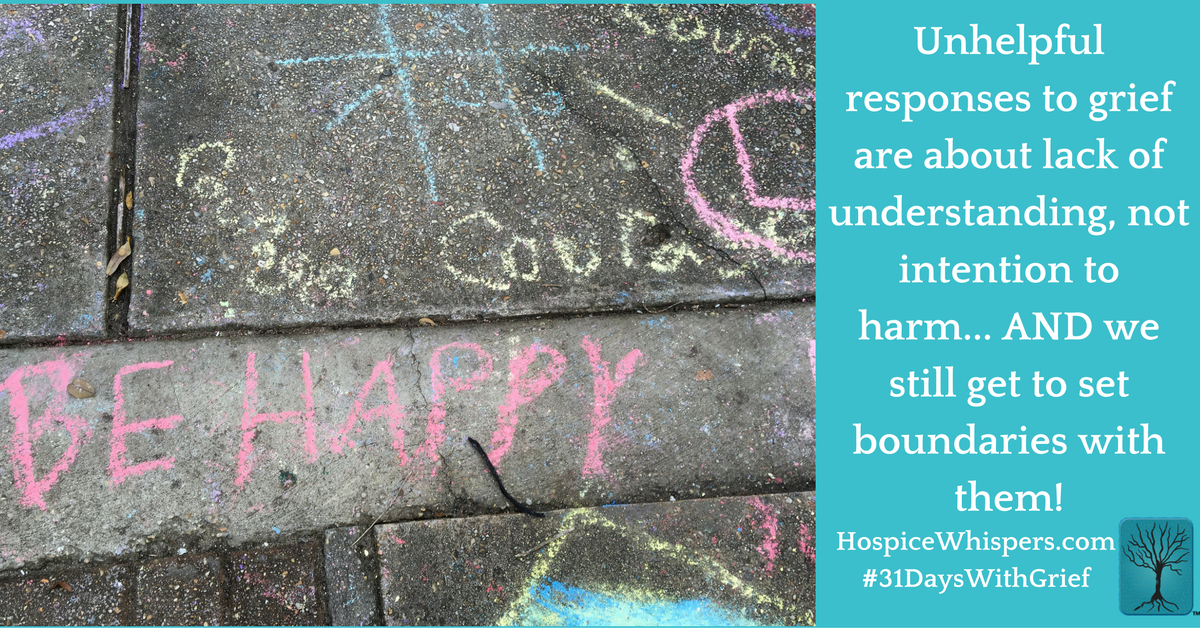

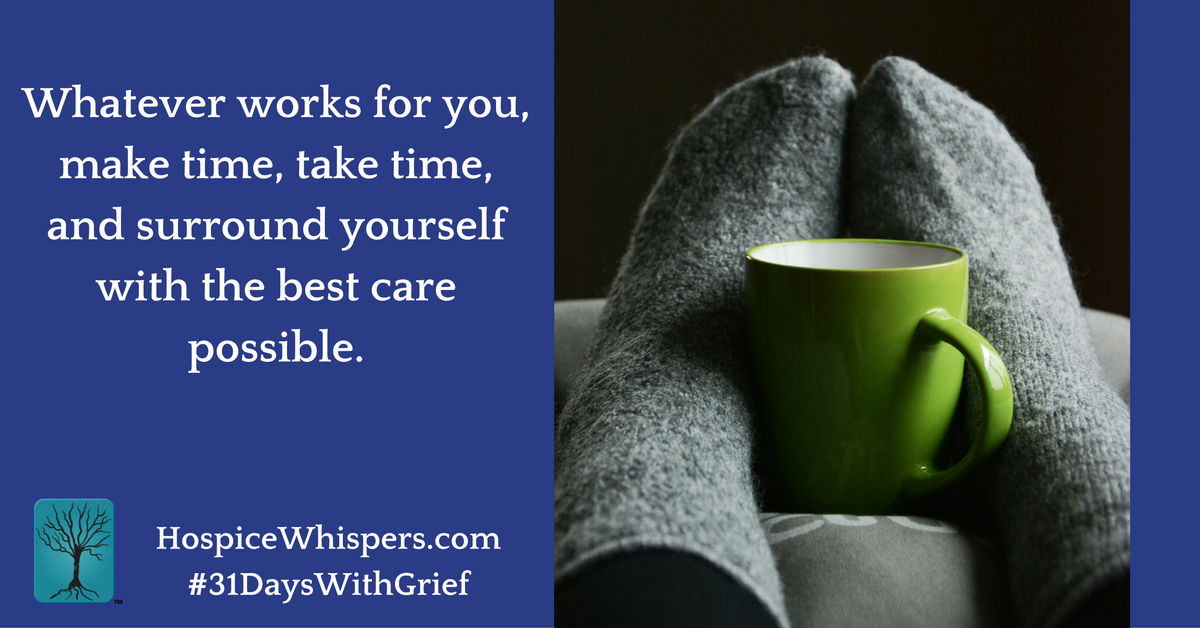
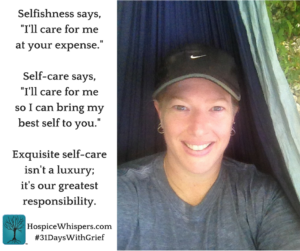 This is me in my hammock next to my favorite waterfall on my favorite hiking trail. Practicing what I teach isn’t always easy. But I’m grateful that saying these things out loud to others helps hold me accountable for actually doing them, myself! If I don’t make space for down time and silence, I quickly become a crispy critter not fit for human consumption.
This is me in my hammock next to my favorite waterfall on my favorite hiking trail. Practicing what I teach isn’t always easy. But I’m grateful that saying these things out loud to others helps hold me accountable for actually doing them, myself! If I don’t make space for down time and silence, I quickly become a crispy critter not fit for human consumption. 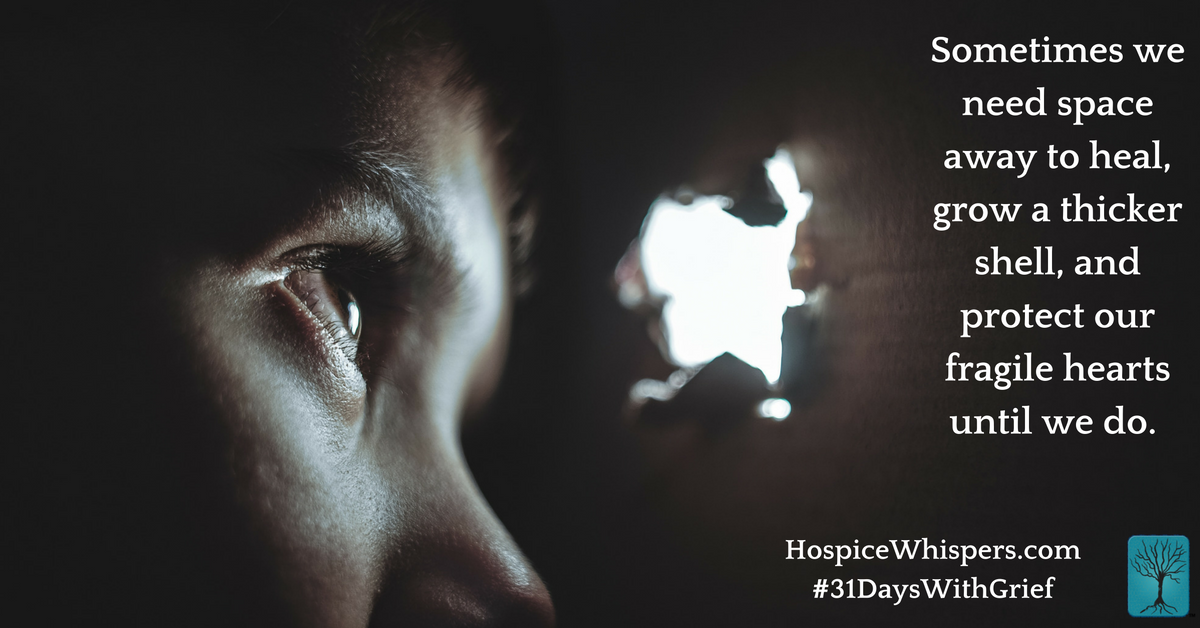
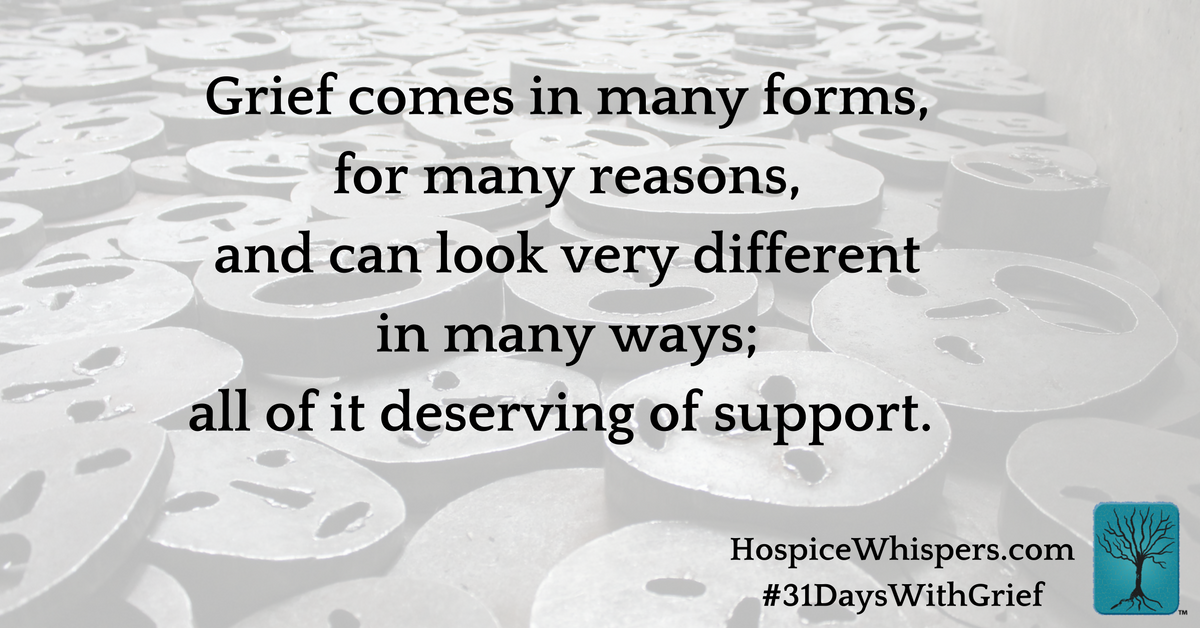
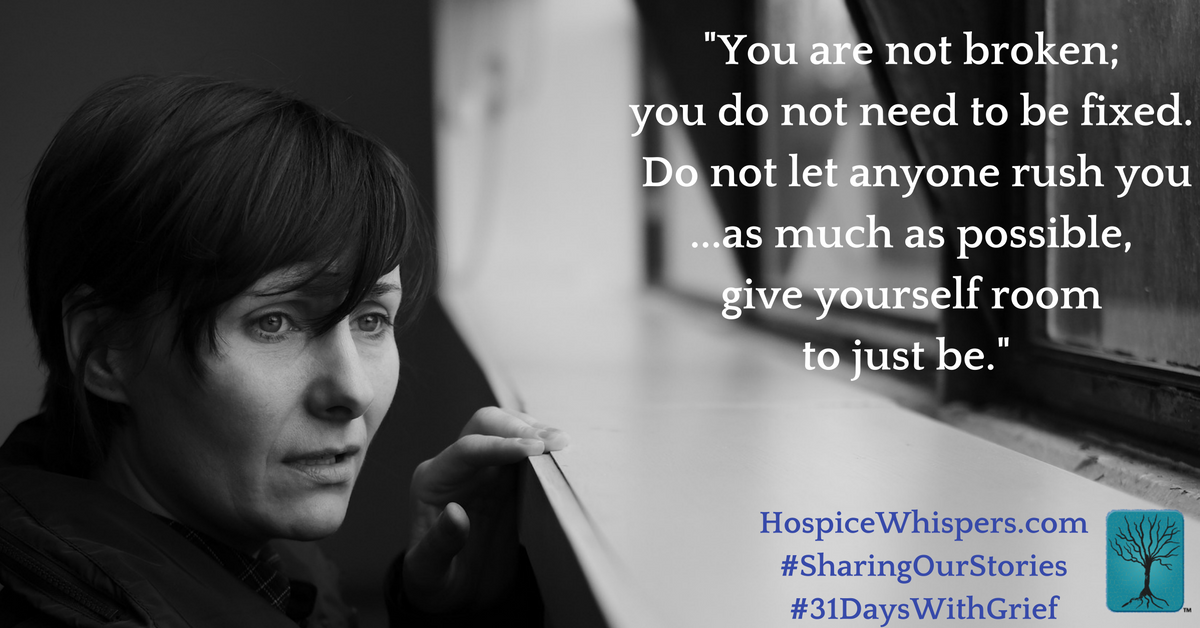
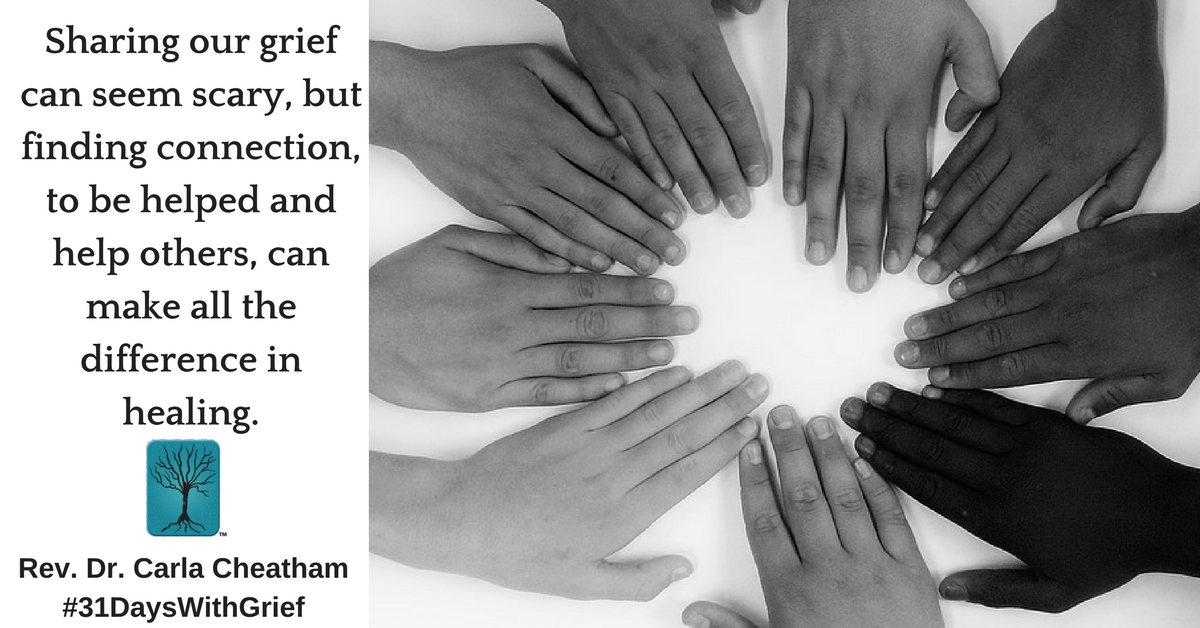
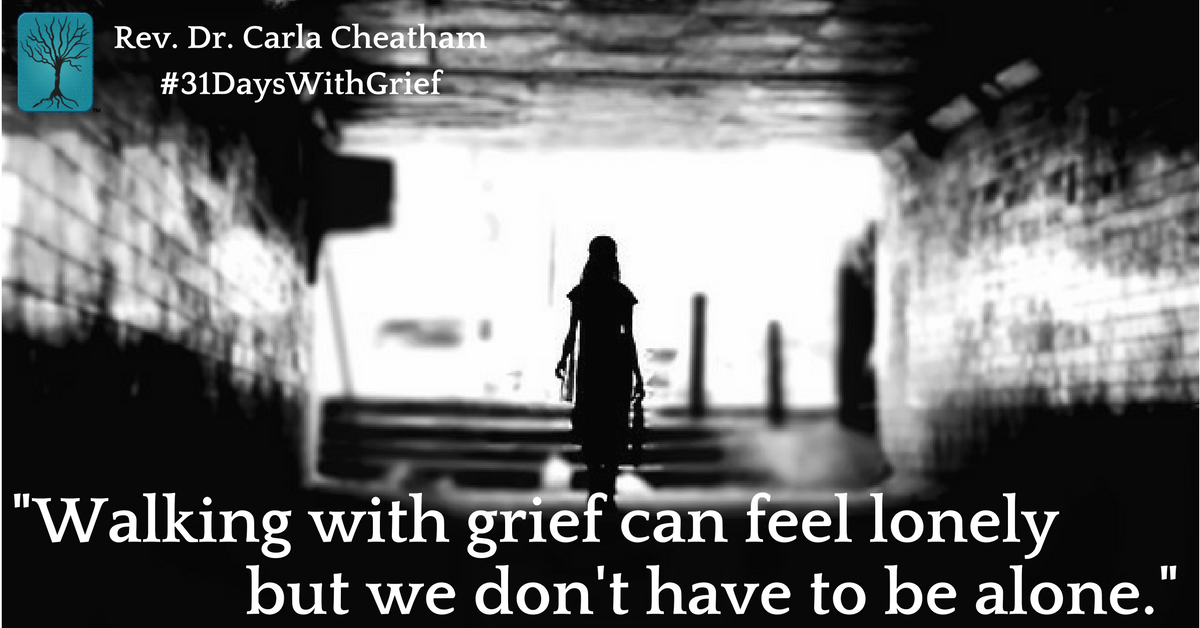
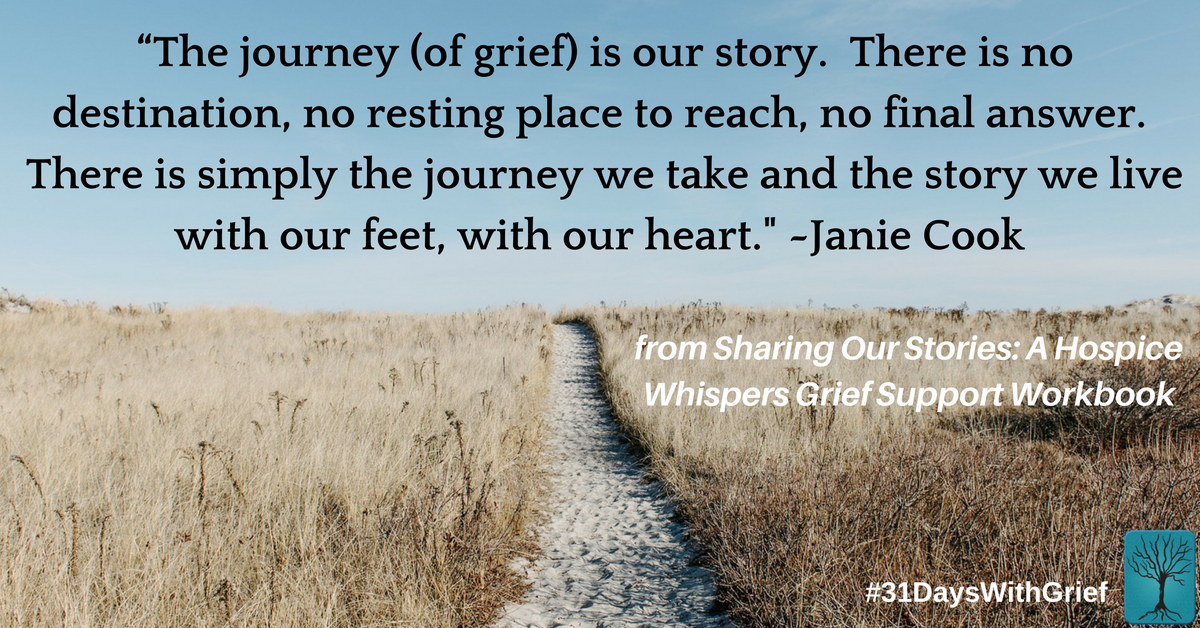

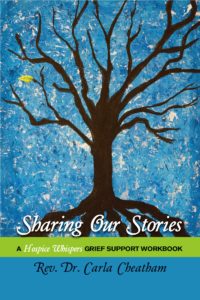 I originally thought persons who had experienced their own grief would avoid the book
I originally thought persons who had experienced their own grief would avoid the book